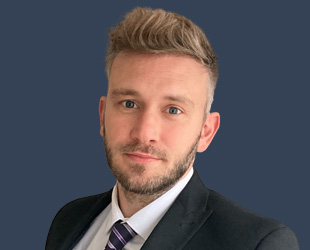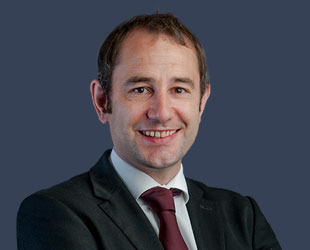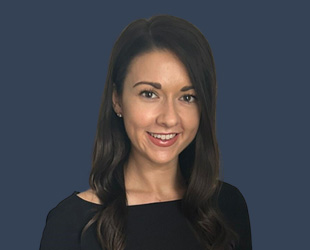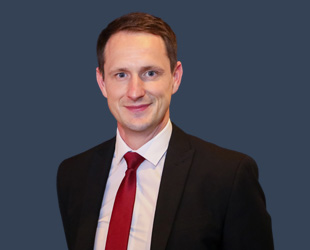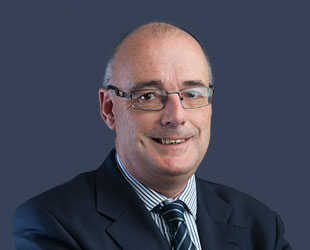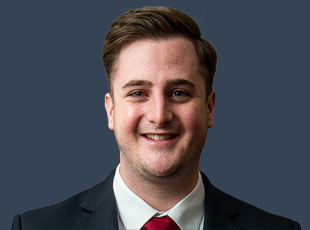- Swansea (Main)01792 773 773
- Caerphilly02920 860 628
- Cardiff02920 225 472
- Carmarthen01267 234 022
- Cowbridge01446 771 742
- Haverfordwest01437 764 723
- Rural Practice01267 266 944
- St Davids01348873671
- Please note that all phone calls are recorded
- Cymraeg
- English
Brain injuries due to medical negligence
If you, or a member of your family, has suffered a serious brain injury the weeks, months and years following the event can be full of upset, worry and uncertainty.
The effects of a brain injury can often be life-changing and can place an enormous emotional, physical and financial burden on all concerned.
Whilst there is no way of turning back the clock, seeking compensation following the negligence of a medical professional, which led to brain injury, can help to ease the burden.
In this time of upheaval and uncertainty, JCP can provide:
- Competent and experienced lawyers who work tirelessly, day in and day out, for the victims of catastrophic head injury.
- Access to a team of doctors and therapists who know how to minimise disability and maximise ability.
- An understanding that a serious accident usually has serious financial consequences and an ability to ensure that interim money is made available to meet immediate needs.
- Securing compensation that will make a real difference on a day to day basis, including, where appropriate, the cost of specially adapted transport, accommodation, house modifications, specialist treatment, support and rehabilitation.
Our team includes three directors, and we are recognised as one of the leading law firms in Wales in the industry bibles; Chambers and the Legal 500. We are also members of the Specialist Panels for Headway, and the UK Acquired Brain Injury Forum.
If you instruct us in relation to a head or brain injury, it is likely that you will work with us for several years whilst we secure the best possible outcome for you. We, like you, understand that compensation is not a windfall, but enables our clients to live as full a life as possible after their accident.
-
- Nick O'Neill
- Director - Medical Negligence
-
- Matthew Owen
- Director & Head of Medical Negligence
-
- Lauren Protheroe
- Director - Medical Negligence
-
- Thomas Rees
- Director - Medical Negligence
-
- Keith Thomas
- Director & Head of Birth Injury
-
- Samuel Barnes
- Associate Solicitor - Medical Negligence
-
- Marnie Novis
- Associate Solicitor - Medical Negligence
-
- Alison Deere
- Legal Assistant - Clinical Negligence
-
- Ellie Sayce
- Legal Assistant - Medical Negligence
-
- Cheryl Smith
- Legal Secretary - Personal Injury
Solid team recognised for its strong presence in West Wales. Regularly instructed on high-value claims of maximum severity, and offers particular depth of experience in brain damage and birth injury cases.
(Chambers UK 2018)
How can medical negligence cause head/brain injuries?
Where the brain receives insufficient oxygen it can result in a condition known as hypoxia. The ability of the brain to recover from this depends on the length of time that it has received insufficient oxygen for. The brain is very sensitive to lack of oxygen and so, even if it is deprived of oxygen for only a matter of minutes, this can sadly result in irreversible brain damage in some cases.
Whilst medical treatment often proceeds without complication, in some instances the brain can be deprived of oxygen as a result of negligent medical treatment, leading to brain damage. This may occur due to:
- Complications during birth
- Drug overdose
- Cardiac or respiratory arrest
- Complications during general anaesthesia
- Complications during surgical procedures
If you believe you, or a loved one, have sustained a brain injury due to the failings of a medical clinician, you may be able to seek financial compensation.
What are the signs and symptoms of a brain injury due to medical negligence?
Individuals who have suffered brain injuries due to clinical negligence may experience a wide range of symptoms, which may vary in severity. Some individuals may suffer relatively minor symptoms such as memory loss or confusion, while others may be in a coma or a state of reduced awareness. If you suspect you or a close family member are displaying the effects of brain injury, it is vital you seek urgent medical intervention. Some of the signs and symptoms include:
- Cognitive deficits – for example, memory problems, difficulty with language or understanding, and impaired concentration, reasoning, insight and empathy, and the ability to process information
- Altered state – coma, post-traumatic amnesia, minimally conscious state, vegetative state, and locked-in syndrome
- Speech difficulties
- Impaired executive functioning – for example, reduced motivation, self-awareness, emotional control, and ability to plan and organise
- Mood swings, depression, frustration and anger, anxiety
- Behavioural changes – for example, disinhibition, obsessiveness, irritability, aggression, and impulsiveness
Brain injury may manifest with a single problem, or a mix of any number of symptoms, which may range in severity from mild to severe, and may be temporary or permanent. Similarly, some problems may respond to treatment and rehabilitation, but others may not. It is important to understand that no two people will display the same complications following a brain injury, and where one person may make a complete recovery, another person may have life-long residual effects.
How are patients with brain injuries treated in hospital?
In the days, weeks, and months following a brain injury, the doctors involved should follow the relevant guidelines and applicable clinical pathway. Initially, the focus will be on ensuring the patient is medically stable and determining the damage caused by using medical imaging techniques (typically a CT or MRI scan). Once a proper assessment has been made, surgery may be required, i.e. to remove a blood clot or stem bleeding.
Following any surgical intervention, your loved one is most likely to be taken to the intensive care unit (ICU), or neurological high dependency unit (HDU). ICU will monitor them carefully with the assistance of specialist neurology consultants. It may be necessary to monitor the pressure within the skull, to ensure no further damage is caused. The medical team will also provide medication and may place the patient into an induced coma to allow the brain time to heal. Throughout their time in hospital, tests will be undertaken to determine the level of damage caused and any improvements in their condition.
What is the process of recovery & rehabilitation following brain injury?
Once your loved one is medically stable and conscious, they are likely to be transferred to a rehabilitation hospital ward for the next stage of their recovery. It is imperative that a rehabilitation plan is put in place as soon as possible to ensure the maximum level of recovery and improvement is achieved. Rehabilitation is likely to start while your loved one is an inpatient, and will continue once they are discharged, as an outpatient.
Rehabilitation covers a wide range of therapies and services designed to provide the best level of recovery possible. Such services may include:
- Speech and language therapy
- Occupational therapy (OT) – OT’s provide an extremely wide range of interventions from helping an individual to get back to work, helping them with strategies for memory loss, helping to re-learn how to cook and carry out activities of daily living, and the provision of assistive aids
- Physiotherapy (PT) – PT’s will focus on regaining an individual’s mobility and strength
- Neurological therapy
- Educational specialists
- Home care and support workers
- Transport (including modifications to vehicles)
- Housing and house modifications
How can I claim compensation for a Brain Injury?
To bring a claim for a brain injury due to medical negligence, it is recommended that you instruct a specialist solicitor who is experienced in dealing with cases involving brain injury and achieving the best result for their clients. JCP Solicitors has a specialist legal team focusing specifically in this area of law, and will ensure the best interests of your loved one and your family are represented from the outset to the completion of your matter.
The first stage in investigating a potential claim is to establish what happened and what went wrong. In order to do this, the medical records will be obtained and carefully reviewed and your recollection of events recorded in a statement, before independent medical experts provide their opinion on the standard of care provided.
- Some examples of substandard care that are sometimes identified include: Not providing sufficient warning of risks for medication or treatment
- Not gaining proper consent prior to a procedure
- Not conducting an operation or treatment to the required standard
- Prescribing the wrong medication or the wrong dosage
- Failure or delay in providing a diagnosis
What are the time limits for a brain injury claim?
In most cases you will have three years from the date you were aware of the damage caused to bring a claim at court.
Typically, this is the day the medical negligence occurred, but it may be later if you were not immediately aware of the damage suffered.
This time limitation does not apply to those under 18 – in which case a claim must be raised within three years of the 18th birthday.
In addition, if the individual lacks the mental capacity to bring a claim, the limitation period does not apply.
Why engage JCP Solicitors to manage your clinical negligence brain injury claim?
JCP Solicitors has a team of specialist medical negligence lawyers who work tirelessly, day in and day out, for the victims of catastrophic brain injury.
We can provide access to a team of doctors and therapists who know how to minimise disability and maximise ability.
We understand that a brain injury caused by medical negligence can have serious financial consequences, as such, we will seek to ensure that interim money is made available to meet immediate needs.
Our team includes four directors, and we are recognised as one of the leading law firms in Wales in the industry bibles; Chambers and the Legal 500. We are also members of the Specialist Panels for Headway and the UK Acquired Brain Injury Forum.
Beyond all of this, and most importantly, we care. We strive to secure the very best outcome for our clients and their families, providing the support and guidance they need. Brain injuries change the lives of the survivor and those closest to them, and they deserve all the assistance possible to put their lives back on track.
JCP Solicitors is a regional law firm with offices in Swansea, Cardiff, Caerphilly, Carmarthenshire, Cowbridge and Pembrokeshire. For confidential guidance and representation on bringing a claim for medical negligence which has led to a brain injury, please call our office on 03333 209244 or email us on law@jcpsolicitors.co.uk.
